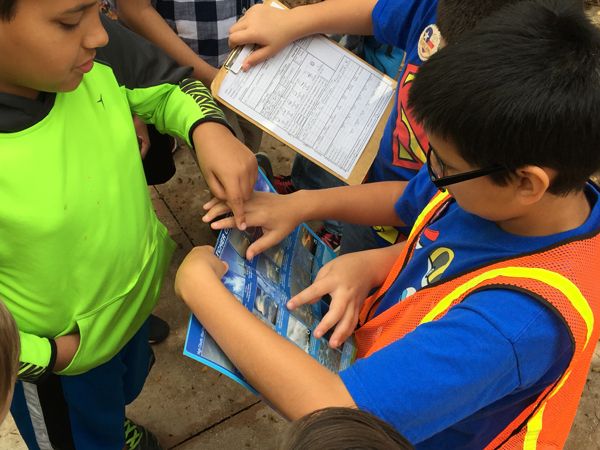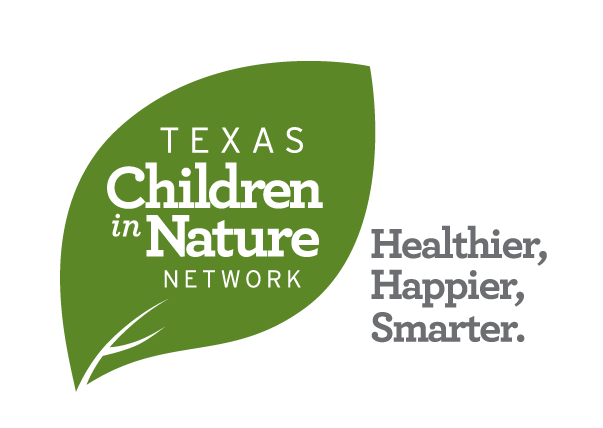
Do Better in School
Many of the studies that have looked at the connection between time spent in nature and performance in school. However, one of the most important functions nature plays in a child's development happens before a child enters into formal education. Executive functions such as following directions, working cooperatively and working through problems are all improved when a child spends time outdoors.
Converging Evidence from Diverse Fields Offers Causal Support for Nature’s Impact on Learning, Development and Environmental Stewardship
Do experiences with nature –– from wilderness backpacking to plants in a preschool to a wetland lesson on frogs, promote learning? Until recently, claims outstripped evidence on this question. But the field has matured, not only substantiating previously unwarranted claims but deepening our understanding of the cause-and-effect relationship between nature and learning. Hundreds of studies now bear on this question, and converging evidence strongly suggests that experiences of nature boost academic learning, personal development, and environmental stewardship. This brief integrative review summarizes recent advances and the current state of our understanding. The research on personal development and environmental stewardship is compelling although not quantitative. Report after report –– from independent observers as well as participants themselves –– indicate shifts in perseverance, problem-solving, critical thinking, leadership, teamwork, and resilience. Similarly, over fifty studies point to nature playing a key role in the development of pro-environmental behavior, particularly by fostering an emotional connection to nature. In academic contexts, nature-based instruction outperforms traditional instruction. The evidence here is particularly strong, including experimental evidence; evidence across a wide range of samples and instructional approaches; outcomes such as standardized test scores and graduation rates; and evidence for specific explanatory mechanisms and active ingredients. Nature may promote learning by improving learners’ attention, levels of stress, self-discipline, interest, and enjoyment in learning, and physical activity and fitness. Nature also appears to provide a calmer, quieter, safer context for learning; a warmer, more cooperative context for learning; and a combination of “loose parts” and autonomy that fosters developmentally beneficial forms of play. It is time to take nature seriously as a resource for learning — particularly for students not effectively reached by traditional instruction.
- Kuo, Ming, Michael Barnes, and Catherine Jordan. 2019. “Do Experiences With Nature Promote Learning? Converging Evidence of a Cause-and-Effect Relationship.” Frontiers in Psychology 10. https://doi.org/10.3389/fpsyg.2019.00305.
Access to Nature can Promote the Mental Well-being of Children
This systematic review of the literature examined the association between access to green space and the mental well-being of children. Selection criteria included original research focusing on children (0-18 years) published between 2012 and 2017. Twelve articles fitting these criteria were identified. Three additional articles – published prior to 2012 — were included in the review, as they were often cited as important early research on nature-related benefits for children.
The overall findings of this review indicate that access to natural environments can benefit children in various ways, including improvements in confidence, social interactions, cognitive development, academic achievement, and emotional well-being. The implications of this research-based evidence apply to various sectors of society, including urban planners, health practitioners, educators, and families. Specific recommendations are offered for nursing professionals with pediatric patients. Such recommendations include writing prescriptions for outdoor play, advocating for natural playspaces in the community, and collaborating with multiple disciplines and stakeholders in implementing initiatives connecting children with nature. While this review provides strong evidence of the benefits of access to nature for children, additional research addressing both benefits and barriers to green space access is needed.
- McCormick, Rachel. 2017. “Does Access to Green Space Impact the Mental Well-Being of Children: A Systematic Review.” Journal of Pediatric Nursing: Nursing Care of Children and Families 37 (November): 3–7. https://doi.org/10.1016/j.pedn.2017.08.027.
Children who Take Part in School Gardening Projects Improve in Scientific Learning More Than Those Who Do Not, and Have Healthier Eating Habits
A systematic literature review was conducted on research related to the benefits of time in nature for children under twelve years old. Inclusion criteria of the review included peer-reviewed research published in English between 1990 and 2011 that had a robust methodology and focused on children’s experiences in nearby nature. These criteria yielded 61 studies that were categorized based on the specific benefits that were addressed in the research. The review identified benefits for children related to time in nature in the general areas of health, well-being, cognitive processes, social skills, emotional/behavior issues, and ethics/attitude towards the natural world. The studies were grouped together by specific benefit to develop an overall assessment of the extent to which evidence supports the existence of each benefit.
Overall, the literature review supports the view that spending time in nature is an important childhood experience that promotes their healthy development, well-being and positive attitudes towards the natural world. The review helps to shed particular light on the relationship between benefits and the way in which children engage with the natural environment, highlighting “the value of more playful engagement styles such as free play, exploration, leisure and child initiated learning.” An overall theme was that more playful engagement with nature was associated with health benefits as well as positive environmental attitudes and less playful approaches, such as school gardening projects and field trips, yielded more educational benefits. This insight into the importance of children’s playful engagement with the natural world is an important contribution to the literature and provides support for “initiatives that allow for more open-ended, child-directed and playful experiences in natural environments.”
- Gill, Tim. 2014. “The Benefits of Children’s Engagement with Nature: A Systematic Literature Review.” Children, Youth and Environments 24 (2): 10–34. https://doi.org/10.7721/chilyoutenvi.24.2.0010.
Nature-Smart Kids Get Higher Test Scores
The American Institutes for Research® conducted a study, submitted to the California Department of Education, of the impact of week long residential outdoor education programs. The focus was on at-risk youth, 56% of whom reported never having spent time in a natural setting. Comparing the impact on students who experienced the outdoor education program versus those in a control group who had not had the outdoor learning experience, results were statistically significant. Major findings were: 27% increase in measured mastery of science concepts; enhanced cooperation and conflict resolution skills; gains in self-esteem; gains in positive environmental behavior; and gains in problem-solving, motivation to learn, and classroom behavior.(Original research)
- "Effects of Outdoor Education Programs for Children in California." American Institutes for Research: Palo Alto, CA: 2005. Available on the Sierra Club web site.
Environmental Education
School Performance: Offering environmental education programs in school improves standardized test scores. The present research investigated the impact of environmental education (EE) programs on student achievement in math, reading, and writing by comparing student performances on two standardized tests for environmental education schools and schools with traditional curriculum.
- Bartosh, Oksana. Environmental Education: Improving Student Achievement. Thesis. Evergreen State College, 2003. Web. 2003.pdf.
Study Proves Outdoor Science Education Improves Test Scores
Dogwood Canyon Audubon Center and the Cedar Hill ISD in Texas partnered on a study with 500 5th grade students to determine the impact of the Center’s customized Eco Investigations lessons on student academic performance including STAAR testing results. This study demonstrates that Dogwood Canyon’s customized outdoor program approach delivers true academic results. This study was made possible by a generous donation from Bruce and Billie Ballengee.
Students go on field trips every week in North Texas. Dogwood Canyon Audubon Center wanted to see just how well their program impacted student achievement. Based on benchmark test results, Dogwood Canyon adjusted its standard Eco Investigations program to address areas where students need to improve in science. The students who participated outperformed nonparticipants by 20% or more on six questions. Eco Investigations provided specific hands on powerful learning experiences on food chains and food webs demonstrating remarkable success for the students on the related STAAR test questions. Dogwood Canyon’s unique approach to a customized outdoor academic experience demonstrated true academic results. In Texas, no study on outdoor science programming has ever been linked to state testing improvement.
